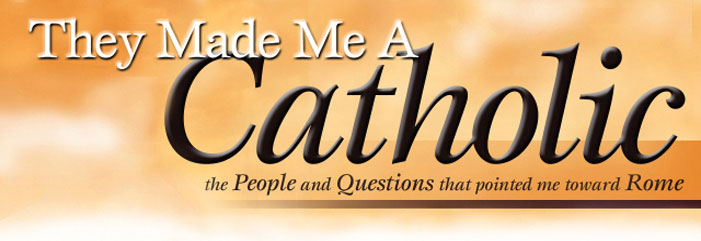|
In the end, that was the central question
that remained. Had Christ come to bring us truth only for that
truth to be lost in opinion wars? Or had God preserved that truth
for each of us literate or illiterate, smart or dense,
Bible scholar or 8th grade drop-out?
Plainly, the Bible was part of the communication
of truth. I wasn't about to toss the baby out with the bath water.
And yet the Bible, I had discovered, does not do us the favor
of standing up and rightly interpreting itself. Thus, if Christ
meant his teachings for each and every one of us, how could a
sheep know what the Good Shepherd truly intended him to know
about baptism, the Lord's Supper, marriage, and so on? How?
I saw only two choices.
The first was to give up the search and join
a not-so-Bible-believing congregation. In other words, "wise
up". Realize that, despite Christ's repeated use of solemn
phrases like "verily, verily, I say unto you", truth
really is unattainable in these matters.
I had to admit Scripture does touch upon deep,
unsearchable mysteries. And we honor these mysteries when we
avoid a superficial satisfaction in "possessing" the
truth. But taking this too far turning the Gospel into
a Gnostic riddle or a rarified academic debate denies that
Christ's teachings were meant for all, for "smallest of
these".
Fortunately, I didn't get lost in all that.
I knew someone could receive the truth without destroying its
mystery.
I had read somewhere that Catholic novelist
Walker Percy was strongly influenced by Kierkegaard's essay,
"Of the Difference between a Genius and an Apostle".
I tracked down that essay.
|
In it, Kierkegaard points out the difference
between a "revealed truth" and a truth arrived at through
human effort. "Revealed truths" are details about reality
which God makes known to us we accept them on the basis
of God's authority, not because our genius pierced the veil.
Thus, in much of what he taught (see John 6, for example), Christ
handed us mysteries, saying, "This is what is true."
The apostles spread these truths on the basis of Christ's trustworthiness
and authority not on the basis of their recent SAT scores.
Two thousand years later, we still accept
these revealed truths on the basis of Christ's authority.
Authority.
Okay, so Bible-only Christians believed they were accepting revealed
truths when they deferred to the writings of the apostles. But
then flawed interpretation got in the way. So what did "Bible
plus authority" folks do? To what did they defer?
To the writings of the apostles and to the
successors of the apostles. To bishops who claim
to have received "by the laying on of hands" the authority
to speak in the name of Christ. To bishops, I discovered, who
claim to pass on only what was given them with no new revelations,
no innovations from human "genius".
Hmmmm. That would provide a form of
checks and balances which Protestants don't enjoy. As in the
times of the original apostles, if a false idea was gaining ground
a bishop, like his apostolic ancestor, could speak out against
that falsehood with real authority. This sort of binding, "buck
stops here" authority, of course, was exactly what some
dislike about the Catholic approach. But what if truth hangs
in the balance...
It was time to look into this peculiarly Catholic
form of Christianity.
|

